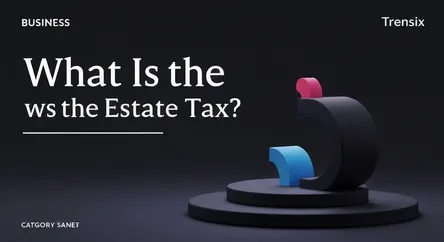Business
What Is the Estate Tax?

Learn about the estate tax, a tax on the transfer of a deceased person's property. Understand who pays it and why it's a key part of financial planning.
What is it?
The estate tax, sometimes called the "death tax," is a levy on the transfer of a person's property to their heirs after death. It is calculated on the net value of the deceased's total estate, which can include cash, real estate, stocks, and other assets. This tax only applies to estates that exceed a specific, high-value exemption threshold set by the government. In the United States, the federal estate tax exemption is very high, meaning only a tiny percentage of the wealthiest estates are actually required to pay it. Some individual states also impose their own separate estate or inheritance taxes.
Why is it trending?
The estate tax is a constant topic in political and economic discussions, especially concerning wealth inequality and tax policy reform. Debates often intensify during election seasons, as candidates propose changes to the tax rates and exemption amounts. Recent discussions have focused on whether to lower the exemption to tax more wealthy estates or to eliminate the tax entirely, with proponents arguing it addresses wealth gaps and opponents claiming it's a form of double taxation. These ongoing debates keep the topic relevant in financial news.
How does it affect people?
For the vast majority of individuals, the federal estate tax has no direct financial impact. Its primary effect is on high-net-worth individuals and their families, who must engage in sophisticated estate planning to manage their potential tax liability. Strategies often include setting up trusts, making lifetime gifts, and purchasing life insurance to ensure their heirs receive their intended inheritance with a minimal tax burden. For others, understanding the concept is an important part of broader financial literacy, helping to dispel myths and clarify long-term wealth transfer goals.